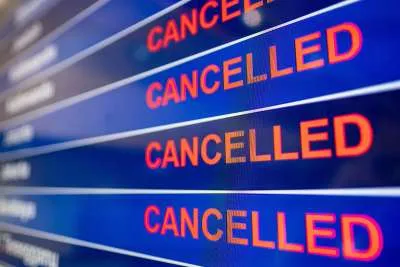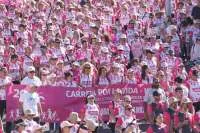New benefits for the self-employed are available from Monday
- 30-01-2021
- Business
- Canarian Weekly
From Monday, February 1st, self-employed workers will be able to access four new types of benefits for cessation of activity. The Council of Ministers gave the green light on Thursday not only to the extension of the measure until May 31st, but also to improvements made to it. The changes will allow access to the benefit for a greater number of self-employed who are facing the consequences of the third wave of the coronavirus.
Specifically, the Royal Decree approved last week by the Government, as a result of the agreement reached with the three majority self-employed organizations, facilitates access to the benefit by eliminating several requirements:
- The first is that it is not necessary to have requested the benefit before;
- The level of losses that must be credited to qualify for the cessation of activity is also lowered from 75% to 50%;
- The conditions are also reformulated to allow the seasonal self-employed to take advantage of the benefit, something that was not possible before because they weren’t able to comply with the requirements imposed on them.
Following publication in the Official State Gazette (BOE), the extension of the cessation of activity until May 31st is regulated as follows with the following four modalities:
1.- Extraordinary provision of cessation of activity for self-employed workers affected by a temporary suspension of all activity as a result of restrictions imposed by the authorities as a measure to contain the spread of the Covid-19 virus.
This modality is designed for when an administration decrees the closure of businesses, for example, the hospitality industry. The self-employed affected by this decision can request this modality, the benefit for cessation of activity for temporary suspension of all activity. "It has to be a total suspension, it is not based on a reduced capacity," said Laura Gómez, general director of the National Federation of Self-Employed Workers Association (ATA).
The self-employed person affected, must request the benefit within a period of 21 days after the closure was decreed, and it will be asked for, as has been done so far, by your mutua. If requested outside that period, the benefit will begin to be received from the day it is requested.
In these cases, the self-employed person will receive 50% of the minimum contribution base (about 472.2 euros a month) and will be exempt from paying the Social Security fee until the last day of the following month in which the closing is lifted, or on May 31st 2021, if this last date is earlier.
As indicated by the Minister of Inclusion, Social Security and Migrations, José Luis Escrivá, in the press conference after the Council of Ministers, the self-employed will receive about 760 euros per month for this situation (which is the sum of the 472.2 euros mentioned, plus the exemption from paying social security.
This amount will be increased by 20% if the self-employed person is recognized as having a large family, and the only income from the family or similar unit comes from the activity that has been suspended. And if two or more members who are entitled to this benefit coexist at home, the amount of each of the benefits to which they will be entitled is reduced to 40% of the minimum Social Security contribution base.
2.- Extraordinary provision of cessation of activity for those self-employed workers who cannot meet the requirements of the ordinary provision of cessation of activity provided for in article 7 of this royal decree-law, or to the provision of cessation of activity regulated in articles 327 and following the consolidated text of the General Law of Social Security, approved by Royal Legislative Decree 8/2015, of October 30.
This type of benefit is created for those who were unable to access the previous cessation of activity benefits. It is designed, according to Gómez, for those professionals who do not meet the requirement of having contributed 12 months for cessation of activity, for example, being in a flat rate. They will receive a minimum of 760 euros per month.
Interested parties must have been registered before April 1st 2020 and not have taxable income from activities in the first half of 2020 greater than 6,650 euros. They will also have to have a fall in income in the first half of 2021 compared to the first half of 2020.
The benefit will be 50% of the minimum contribution base (about 472.2 euros per month) and exemption of paying social security. This modality can be requested from February 1st, within a period of 21 days. This benefit may be waived at any time before April 30th.
3.- The provision of cessation of activity compatible with self-employment.
This modality is designed to cover those self-employed who have not managed to recover the activity levels of their business and do not plan for this to happen in the coming months. To access the benefit, two requirements must be met: the first, to have contributed at least 12 months prior to the date of application for the benefit due to cessation of activity. "It must be remembered that since January 2019, all self-employed workers are quoting for cessation of activity, except those who are in a flat rate that is voluntary, therefore everyone could access this benefit," said Gómez.
And the second, is that its turnover has dropped by 50% between the first half of 2021 compared to the second half of 2019. It is important to note that, in the first half of 2021, the net income of the self-employed who requests this modality of cessation of activity must not exceed 7,980 euros.
Interested freelancers may request this modality from the moment the decree enters into force, that is, from Monday February 1st to the 21st. "In cases in which it is requested outside that date, the benefit will begin to be collected from the date it is requested," said Gómez. The self-employed who join may receive 70% of the contribution base.
According to the general director of ATA, “with the exemption of the self-employed contribution to Social Security, the same thing will happen as now. The self-employed worker is not exempt from paying it, but it is returned to him when he receives the mutua benefit. The professional must pay his fee and, when the mutual makes the income, will collect the benefit plus the return of the fee he advanced. Likewise, Gómez explained that there are two concepts of the self-employed quota that will not be included in this refund: “the contribution for cessation of activity and the contribution for training are left out of the return, which on a minimum basis both represent about 16 euros monthly”.
In addition, this modality allows to combine the collection of the benefit with the work for others, ie multiple activity, provided that the following conditions are met: that the net taxable income from self-employment and the income from the employed do not exceed 2.2 times the SMI. In addition, in this calculation, income from work as a salaried employee will not exceed 1.25 times the SMI. In these cases, the self-employed person will receive a benefit of 50% of the minimum contribution base.
4.- Extraordinary benefit for seasonal self-employed workers.
As of February 1st, it should be easier to access the unemployment benefit for the seasonal self-employed. These are those professionals “who were working as freelancers in 2018 and 2019 for a minimum of 4 months and a maximum of 6 in each of those two years. In other words, the time requirements set out in each of the exercises must be met,” said the ATA CEO.
Two of the months in which these seasonal freelancers have had to be registered with the RETA must be between January and June. The last requirement of this modality is that in this first half of 2021 you cannot obtain an income higher than 6,650 euros.
As in the previous modality, you have to request the benefit in the first 21 days of February if you want to get paid next month. If it is done later, it will begin to be received from the day after the request. The amount of the benefit will be 70% of the minimum base (660 euros per month).
One of the aspects of this benefit is that “it does not oblige you to be registered in the RETA when you are enjoying the benefit, given that the normal thing for these seasonal self-employed is to be discharged in these months. The period in which the benefit is being collected, the mutual will be quoting for the self-employed,”said Gómez.
The level of protection for the self-employed is increased
Achieving the agreement that has given rise to this decree approved by the Government has not been easy, intense negotiations have been necessary with the organizations of the self-employed to be able to cover the gaps in a measure that was preventing thousands of self-employed from accessing the benefit. In fact, the “reduction of conditions” and the “improvement of access” are two of the main aspects highlighted by the president of ATA, Lorenzo Amor, about the new measures: “many freelancers who are living a very difficult situation due to the restrictions are going to be able to benefit now”.
Specifically, the news to which Amor refers are, on the one hand, the condition that it is only necessary to prove a 50% drop in income to be entitled to termination. Until now, it was required to prove a 75% drop in income, which limited access.
On the other hand, the requirement of having accessed the benefit between March and June 2020 is also eliminated. This condition was leaving thousands of self-employed workers, who were parents during the state of alarm, or who had an accident and agreed to leave due to Temporary Disability, out of the cessation of activity.
For Amor, "the extension of the cessation of activity that the Government has approved supposes a higher level of protection for the self-employed." Specifically, and based on ATA estimates, the number of beneficiaries of the benefit will go from the current 350,000 to about 800,000. Or, what is the same, "one in four self-employed may now benefit from the cessation of activity in one of its formulas."
Other articles that may interest you...
Trending
Most Read Articles
Featured Videos
A Vision of Elvis Tenerife Promo
- 10-05-2025
TEAs 2025 Highlights
- 17-11-2025

























































